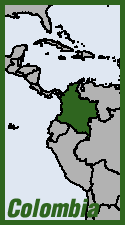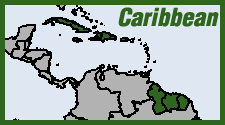 Colombians made history March 8, as tens of thousands took to the streets in cities and towns nationwide—joined by Colombian ex-pats and immigrants in the US, Canada, Europe and elsewhere—to show their support for peace talks between the government and FARC guerillas. The "March for Life" was organized by Bogotá’s ex-mayor Antanas Mockus and was embraced by President Juan Manuel Santos, who joined the march in the capital. Since then, there have been some encouraging signs that the country’s multi-decade armed conflict is really coming to an end. (EuroNews, March 9; AP, Colombia Reports, March 8)
Colombians made history March 8, as tens of thousands took to the streets in cities and towns nationwide—joined by Colombian ex-pats and immigrants in the US, Canada, Europe and elsewhere—to show their support for peace talks between the government and FARC guerillas. The "March for Life" was organized by Bogotá’s ex-mayor Antanas Mockus and was embraced by President Juan Manuel Santos, who joined the march in the capital. Since then, there have been some encouraging signs that the country’s multi-decade armed conflict is really coming to an end. (EuroNews, March 9; AP, Colombia Reports, March 8)

 After weeks of escalating tensions along the remote mountain border, a Burmese MiG-29 fighter jet carried out an air-strike on Chinese territory March 13, killing four people working in a sugar-cane field in Yunnan province. Chinese authorities stepped up security along the border and registered a diplomatic protest. Burma, after initially denying everything, issued a statement expressing "deep sorrow" over the deaths. But Beijing says there have been at least three similar incidents of bombs from Burmese government forces falling in Chinese territory in recent weeks, and warned of "decisive" measures if there were any more. This all concerns the fast-escalating war in Burma's northern Shan state, where the rebel army of the Kokang ethnicity has again taken up arms against the government. More than 50,000 people—mostly Kokang—have fled the fighting into Chinese territory since the war was re-ignited earlier this year, and Burma accuses local military commanders in China of allowing the rebels to establish a staging ground in the border zone. (
After weeks of escalating tensions along the remote mountain border, a Burmese MiG-29 fighter jet carried out an air-strike on Chinese territory March 13, killing four people working in a sugar-cane field in Yunnan province. Chinese authorities stepped up security along the border and registered a diplomatic protest. Burma, after initially denying everything, issued a statement expressing "deep sorrow" over the deaths. But Beijing says there have been at least three similar incidents of bombs from Burmese government forces falling in Chinese territory in recent weeks, and warned of "decisive" measures if there were any more. This all concerns the fast-escalating war in Burma's northern Shan state, where the rebel army of the Kokang ethnicity has again taken up arms against the government. More than 50,000 people—mostly Kokang—have fled the fighting into Chinese territory since the war was re-ignited earlier this year, and Burma accuses local military commanders in China of allowing the rebels to establish a staging ground in the border zone. ( A bipartisan group of US Senators on March 10 announced legislation to end the federal ban on medical marijuana. The Compassionate Access, Research Expansion and Respect States (CARERS) Act is sponsored by senators
A bipartisan group of US Senators on March 10 announced legislation to end the federal ban on medical marijuana. The Compassionate Access, Research Expansion and Respect States (CARERS) Act is sponsored by senators  Aide Nava, 42-year-old woman running for mayor in Mexico's conflicted southern state of Guerrero, was found decapitated March 11, a day after she was abducted in her hometown of Ahuacuotzingo. The decapitated body was found in the municipality's outlying hamlet of Tecoanapa with a note signed by Los Rojos, one of the main Guerrero narco-gangs, threatening the same treatment for any politician who does not "fall in line." She had been seized the previous day by gunmen who stopped her campaign bus on a rural road. Nava's family, activists with the leftist Party of the Democratic Revolution (
Aide Nava, 42-year-old woman running for mayor in Mexico's conflicted southern state of Guerrero, was found decapitated March 11, a day after she was abducted in her hometown of Ahuacuotzingo. The decapitated body was found in the municipality's outlying hamlet of Tecoanapa with a note signed by Los Rojos, one of the main Guerrero narco-gangs, threatening the same treatment for any politician who does not "fall in line." She had been seized the previous day by gunmen who stopped her campaign bus on a rural road. Nava's family, activists with the leftist Party of the Democratic Revolution ( Here we go again: the headline says one thing, the actual text (if you read carefully enough) something else entirely. In the relentless effort to
Here we go again: the headline says one thing, the actual text (if you read carefully enough) something else entirely. In the relentless effort to  Cannabis legalization as a political platform in Israel has traditionally been the domain of the
Cannabis legalization as a political platform in Israel has traditionally been the domain of the 





Recent comments
1 week 2 days ago
1 week 3 days ago
4 weeks 3 days ago
5 weeks 3 days ago
9 weeks 3 days ago
13 weeks 1 day ago
17 weeks 2 days ago
18 weeks 10 hours ago
28 weeks 10 hours ago
32 weeks 20 hours ago